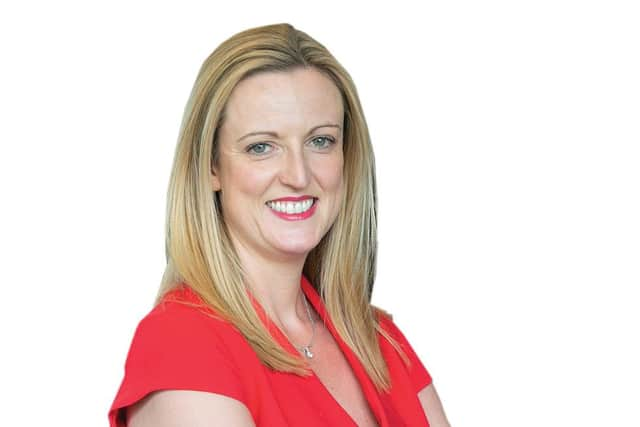How family businesses are battling the Covid recession


In early 2020, before any of us had an inkling of Covid-19, it was business as usual for family firms. Generating almost half of Scotland’s GDP, these businesses were growing both organically and through acquisition, while focussing on their core values.
In the first months of this year, we saw several acquisitions by family businesses in Scotland, including Plaspac Scotland’s acquisition of Ferrari Packaging; James Donaldson & Sons’ purchases of Rowan Timber and Smith & Frater, and Global Energy’s acquisition of Magma Products. The focus was on strategic long-term goals, investing for the future, but doing so in a way that protected the family legacy.
Since March, the story has clearly been different. For most, there was a need to batten down the hatches, pull together and focus. Many family firms have had the benefit of older generations being able to share their experiences of previous tough times, which was invaluable, and will continue to be so as we navigate the recession.


The dynamics of family businesses enable agility and fast decision-making, both of which were crucial at the height of the crisis, when the customer base and supply chain were both in need of immediate attention.
Taking care of employees was key. Family firms tend to have honesty and communication at their core.This has always created staff loyalty, which has never been more important than in Covid-19 times.
Now for many companies, it is time to start to look to the future.
Family businesses often take a prudent approach to debt and so the impact on the balance sheet has been less severe. This will allow many to look for investment opportunities and to consider growth capabilities, possibly outside the core business. Protecting the firm for future generations means planning for the long term, even in difficult times.
While deal activity has most definitely been lower in Q2 of 2020, it has been encouraging to see family business transactions complete, for example Garrick’s Group’s acquisition of MRDS and the employee buy-out of MHB Consultants. While nowhere near the level of activity pre-lockdown, there is hope that we’ll see these green shoots grow in the second half of the year.
The importance of family businesses in helping the economy to get back on its feet cannot be underestimated. At AAB, our many family business clients are up for the challenge, and several are on the hunt for new acquisitions. There is a cautiousness that was not there before, but for the right opportunity they will make strong strategic decisions.
Given the market conditions, some of acquisitions will no doubt will be distressed ones, in addition to purchases of profitable entities. It will be interesting to see in a year’s time how multiples will fair, and I suspect we will see prudence in the market.
One thing is for sure: whether it is by acquisition or organic rejuvenation, family businesses will be a key part in supporting our future economic prosperity.
Lyn Calder is managing partner, Edinburgh, and head of Central Belt deals at Anderson Anderson & Brown
Making succession relatively simple
There is no “one size fits all” approach when it comes to protecting family wealth, passing it on to future generations appropriately and at the “right time”. Setting up a family investment company (FIC) is an increasingly popular choice for successful family business owners as part of their broader succession and tax planning strategy.
While trusts have a significant role to play in protecting family wealth for future generations, thanks to limitations placed on the value that can be settled into trust, they typically form only part of a plan in which FICs increasingly feature.
A FIC is a limited company specifically set up to manage and hold investments for the medium- to long-term benefit of future generations. They are typically funded by the founder transferring cash or assets by way of a loan, which is then invested by the FIC.
On its creation, family members, and often family trusts, are brought in as shareholders. The investments are usually equity portfolios or property.
The founder shareholder generally maintains control over the investments and the payment of dividends, and invites other family members on to the board as appropriate.
The Articles and Shareholders Agreement is drafted to protect the shares from sale outside of the family, making this type of structure effective in a divorce or dispute.
Profits and gains are charged at corporation tax rates, which are significantly lower than the equivalent income and capital gains rates paid by individuals.In addition, dividends received may not be subject to UK tax at all. FICs are therefore very tax-efficient where profits are being reinvested, and the return can be significantly increased compared with personal ownership.
Rental profits also enjoy preferential treatment since companies can fully deduct loan interest against profits, whereas this is now restricted for individuals liable to higher rates of income tax. The FIC shelters the investments from income tax until the company pays dividends, creating the potential for considerable savings.
One of the main advantages of FICs are inheritance tax (IHT) benefits. Once the FIC is set up, the increase in value is not part of the founder’s taxable estate. The initial capital can also be given away which (if the founder survives for seven years) reduces the founder’s exposure to IHT.
As with any tax planning there are risks as rates and rules change. HMRC is also reviewing IHT generally, potentially looking to impose lifetime tax charges on all gifts, which could include those within an FIC. Anyone considering this form of planning should do so soon.
The FIC structure is appropriate where the capital and income can be retained within the company for long periods, or used as a structure to pass on to the next generation in the same way one would use a trust. What matters is establishing whether a FIC is appropriate for you and that it has been considered as part of your broader family wealth planning.
Derek Mitchell is managing partner, Aberdeen, and head of business advisory at Anderson Anderson & Brown
‘The best person for the job should be at the top’
I took over as chief executive of the Donaldson Group, a sixth-generation family business, in the spring of this year. We are a 160-year-old independent Scottish firm that began as a forest products specialist with a focus on timber importing before branching out into other areas of our trade.
Over the past ten years we have slowly diversified into a more rounded construction materials solutions provider. Our strategy is quite simple – we aim to be able to supply anything that goes into a new build house. We have seven trading subsidiaries across the group, operating from 31 locations in the UK and we’re continuing to grow.
Anderson Anderson & Brown provides us with corporate finance advice for mergers and acquisitions. They were excellent through the relatively complicated acquisition we completed earlier this year of two Scotland-based businesses, Rowan Manufacturing and Smith & Frater, which have integrated well, despite the pandemic.
Not long after I became chief executive our business had to close for the first time in 160 years. We shut entirely on 23 March – a date which will be forever ingrained in my memory – until 4 May. While some of our peers and competitors remained open, we made an early decision to shut, mainly from a safety perspective for our staff.
When my father took over the firm, we were one of about 50 or 60 family businesses in Scotland in our trade. We can now count the number of family businesses in our industry on one hand.
I think that succession has a lot to do with why this has happened. If there isn’t an obvious successor coming through, the business is likely to sell out to a large national company or private equity.
In terms of what makes family businesses different, I believe scale has a large part to play. If you get too big, you can lose that family touch. While we have doubled in size in the last ten years, we have actively worked to keep our family culture and ethos.
Internal communication is also important, as well as access to people. One of the things which amazes colleagues when they join the business is how flat our structure is – and they can pick up the phone to me or any of our senior leadership team, or come and see me when they want.
From a funding perspective, we are limited because we want to remain an independent family business without external equity investment. We bank with Royal Bank of Scotland and they have been incredibly supportive. We like to keep debt low, so our gearing is maintained around 25 per cent to 50 per cent – we don’t want to risk the crown jewels of the business.
Looking at tax, we’re very straight-laced. We have about 140 shareholders, around 100 of whom are employees. I think we had one of the first employee shared ownership trusts in Scotland.
When it comes to succession, we plan long-term. We brought in a new non-executive about four years ago to help us with the transition. I was adamant that I wouldn’t take over as chief executive if I didn’t feel I had the correct skills at the time.
My father resigned as chief executive in 2011 and neither myself nor my brother felt we were ready to take over. For the first time, we had a non-family member running the business when we appointed Scott Cairns as group managing director. But Scott had worked for us for 24 years, so he knew the business intimately.
My dad became executive chairman so there was still a family influence. Having a family member at or near the top helps maintain a moral compass.Before I joined the Donaldson Group I worked outside the business and was with KPMG for several years. A lot of family businesses fail or don’t perform to the best of their ability because nepotism comes in. It has always been our belief that the best person for the job should always be at the top, whether that is a family member or not.
Over the past few years, this mantra has worked well for our business. Ultimately, it’s about the business and its employees, not the family. People are attracted to come to work for a well-run family businesses and that is of huge value when it comes to recruitment.
To sum up, family businesses are unique, but it’s difficult to put your finger on exactly why. We run ourselves like a good Plc when it comes to such things as governance and controls, but we want to be a successful private business at the same time. It’s a very fine line, but if you can get it right, that’s a good lever for success.
Andrew Donaldson is chief executive officer of the Donaldson Group
Discover more at the AAB website.